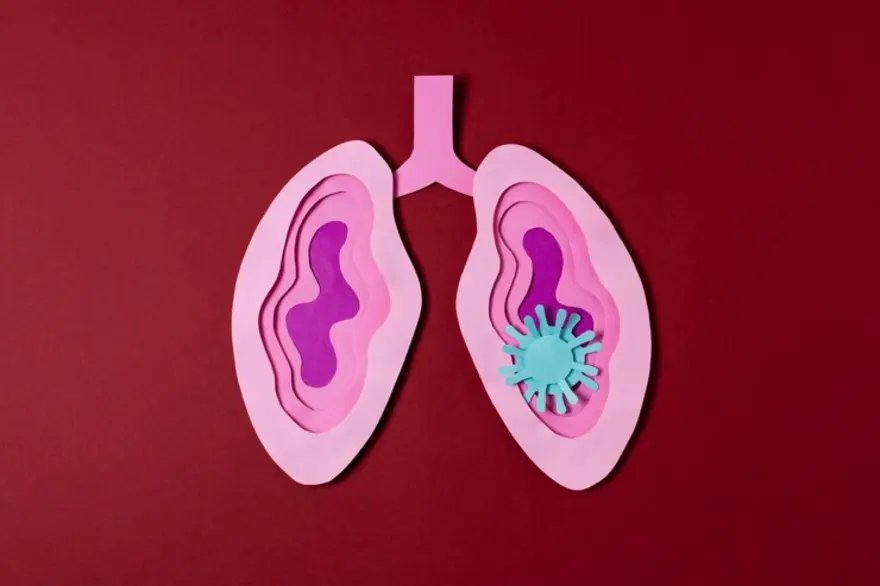Preventive Healthcare
Exploring Cystic Fibrosis: Diagnosis and Treatment
1708 Views
0

What Is Cystic Fibrosis (CF)?
Cystic fibrosis (CF) is a hereditary disorder characterized by the malfunction of a specific protein called CFTR (Cystic Fibrosis Transmembrane Conductance Regulator). It causes the production of thick, sticky mucus that accumulates in various organs, including the lungs and pancreas. Normally, the mucus in organs such as the lungs and nose is thin and slippery, making it easier to clearing particles and pathogens. However, in people with CF, this mucus is unusually thick and viscous, blocking the airways and making breathing difficult. CF is a lifelong condition that requires extensive treatment to relieve cystic fibrosis symptoms and improve your quality of life. Early diagnosis and personalized treatment plans are essential for effective treatment of cystic fibrosis.
What Are The Symptoms Of Cystic Fibrosis (CF)?
Common cystic fibrosis symptoms include:
- Persistent coughing
- Wheezing
- Recurrent lung infections
- Difficulty breathing
- Poor growth
- Salty-tasting skin
- Frequent sinus infections
What Causes Cystic Fibrosis (CF)?
Cystic Fibrosis causes include:
- Genetic Mutations: CF is primarily caused by mutations in the Cystic Fibrosis transmembrane conductance regulator (CFTR) gene.
- Autosomal Recessive Inheritance: CF is inherited in an autosomal recessive manner, meaning that a child must inherit two copies of the mutated CFTR gene (one from each parent) to develop the disease.
- Defective CFTR Protein: Mutations in the CFTR gene lead to the production of a defective CFTR protein, which fails to regulate the movement of salt and water in and out of cells effectively.
- Thick, Sticky Mucus Production: The malfunctioning CFTR protein results in the production of thick, sticky mucus that blocks the airways in the lungs and ducts in other organs.
- Risk Factors: Although the main cystic fibrosis causes are genetic, certain environmental and lifestyle factors can exacerbate cystic fibrosis symptoms in individuals.
How Is Cystic Fibrosis (CF) Diagnosed?
Cystic fibrosis diagnosis typically involves a combination of clinical evaluation, genetic testing, and specialised diagnostic tests. Key steps in the diagnostic process include:
- Newborn Screening: Many countries have newborn screening blood test programs to detect CF early, even before symptoms appear.
- Sweat Test: The sweat test is the gold standard for CF diagnosis, measuring the concentration of chloride in sweat.
- Genetic Testing: Genetic analysis identifies mutations in the CFTR gene, confirming the diagnosis.
- Symptom Assessment: Evaluating symptoms such as breathing problems, digestive issues, and failure to thrive can provide additional diagnostic clues.
How Is Cystic Fibrosis (CF) Treated?
Cystic fibrosis treatment focuses on alleviating symptoms, preventing complications, and improving quality of life. A comprehensive CF treatment plan typically involves a multidisciplinary approach tailored to each individual's needs.
Here's an overview of the various components of cystic fibrosis treatment:
- Airway Clearance Techniques:
- Physiotherapy: Cystic fibrosis therapy such as chest percussion and postural drainage helps loosen and remove mucus from the lungs.
- Airway clearance devices: Devices like oscillatory positive expiratory pressure (PEP) therapy and high-frequency chest wall oscillation (HFCWO) are used to assist in clearing mucus.
- Medications:
- Bronchodilators: These medication that make breathing easier by relaxing the muscles in the lungs and widening the airways (bronchi).
- Mucus-thinning medications: Drugs like dornase alfa (Pulmozyme) helps in thinning mucus, making it easier for people with CF to clear mucus from their airways.
- Antibiotics: Antibiotics are used to treat and prevent respiratory infections, which are common in CF patients.
- CFTR modulators: These newer medications that targets specific defects in the CFTR protein, helping improve its function and reduce CF symptoms.
- Nutritional Support:
- High-calorie diet: CF patients often require a diet rich in calories and nutrients to maintain a healthy weight.
- Pancreatic enzyme supplements: These supplements aid in the digestion of food, as cystic fibrosis causes the pancreas's ability to produce digestive enzymes.
- Vitamin supplements: CF patients may need additional vitamins, especially fat-soluble vitamins like A, D, E, and K.
- Lung Transplantation:
- For people with severe lung disease, a lung transplantation may be considered a last resort for CF.
- Exercise and Physical Activity:
- Regular exercise helps improve lung function and overall fitness in CF patients.
- Psychosocial Support:
- Counseling and support groups can help individuals and families cope with the emotional and psychological challenges of living with CF.
- Clinical Monitoring:
- Regular follow-up with healthcare providers is essential for monitoring disease progression, adjusting cystic fibrosis treatment plans, and addressing any emerging complications.
By combining these different CF treatment approaches under the supervision of a medical professional, CF patients can better manage their condition and live fuller, healthier lives.
What Are The Complications Of Cystic Fibrosis (CF)?
Cystic fibrosis (CF) can lead to several complications affecting various organ systems in the body. These complications include:
- Respiratory Issues: Chronic lung infections, bronchiectasis (widening of the airways), and progressive lung damage that can lead to respiratory failure.
- Digestive problems: Nutrient malabsorption, pancreatic insufficiency, and liver disease can lead to nutritional deficiencies and poor growth in CF patients.
- Sinus infections: Recurrent sinus infections can cause sinusitis and nasal polyps.
- Bone disease: Bone diseases related to CF, including osteoporosis (severe loss of bone density) and osteopenia (mild reduction in bone density), may increase the risk of fractures.
What Is The Outlook For People Who Have Cystic Fibrosis (CF)?
The outlook for people with CF has improved significantly in recent years due to advances in CF treatment and care. With early diagnosis, a personalized treatment plan, as well as ongoing management, many people with CF can live a fuller life. However, CF is still progressive and individuals may face problems related to respiratory and digestive complications.
Conclusion
Cystic Fibrosis is a complex genetic disorder that affects multiple organ systems in the body. Through a multidisciplinary approach encompassing medical treatments, nutritional support, and psychosocial care, individuals with CF can better manage their condition and improve their quality of life. Continued research and advancements in treatment hold promise for further enhancing outcomes and prognosis for those living with CF.
Ready to take control of your CF care journey? Metropolis Healthcare provides a comprehensive range of 4000+ clinical laboratory tests and profiles. Schedule a consultation with Metropolis Labs today.























 WhatsApp
WhatsApp